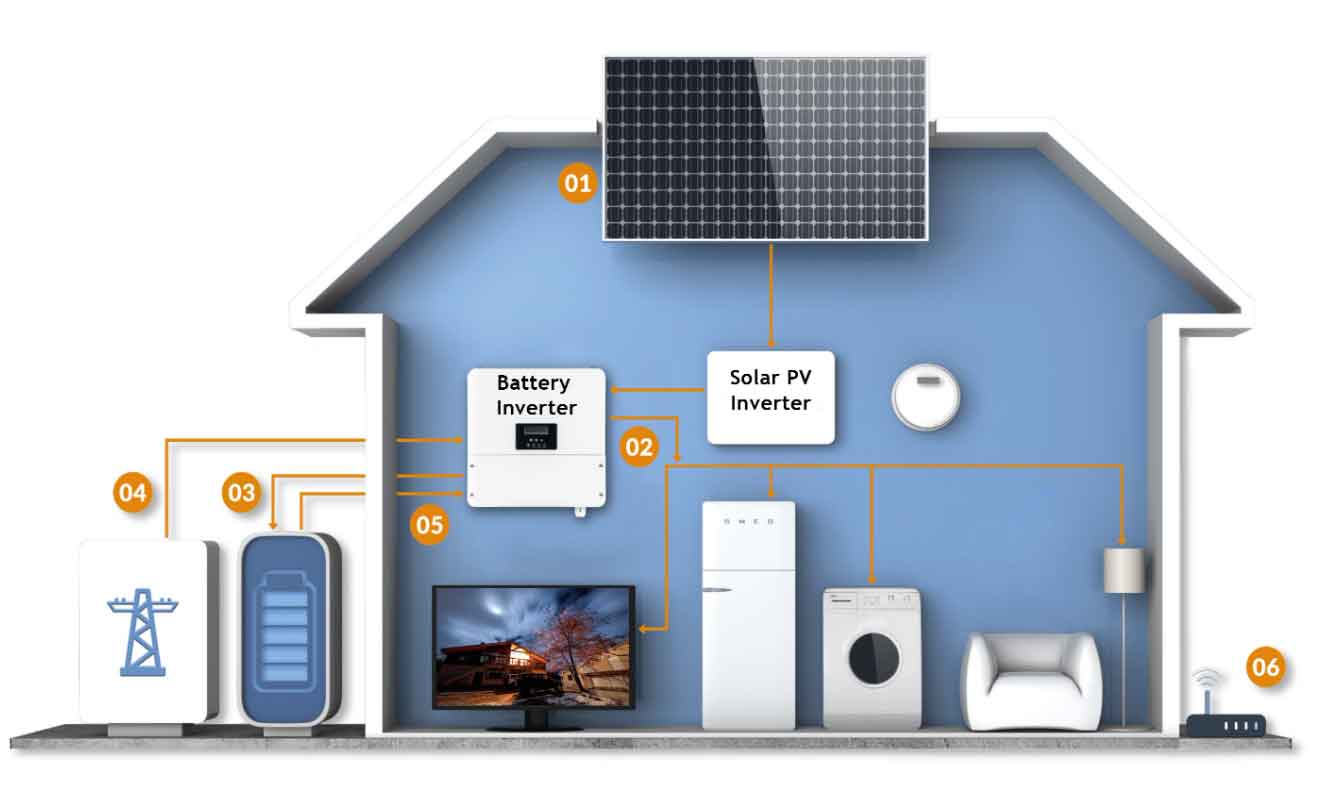
Introduction
The rapid growth of solar energy adoption has been accompanied by significant advancements in solar battery storage technology. As more homeowners and businesses seek to optimize their energy systems, innovations in battery storage are crucial for maximizing efficiency, reliability, and cost-effectiveness. This article explores the latest technological advances in solar battery storage, highlighting the improvements in battery chemistry, system integration, and smart energy management.
Evolution of Battery Chemistry
Battery chemistry has seen remarkable advancements, with several new technologies emerging that offer higher energy density, longer life cycles, and improved safety. Here is a comparative table of various battery chemistries used in solar storage:
| Battery Type | Energy Density (Wh/kg) | Life Cycle (cycles) | Safety | Cost ($/kWh) |
|---|---|---|---|---|
| Lead-Acid | 30-50 | 500-1,000 | Moderate | 100-150 |
| Lithium-Ion | 150-250 | 2,000-5,000 | High | 300-500 |
| Lithium Iron Phosphate (LiFePO4) | 90-160 | 2,000-7,000 | Very High | 350-600 |
| Solid-State | 400-500 | 10,000+ | Very High | 500-1,000 |
| Flow Batteries | 20-30 | 10,000+ | High | 200-800 |
Key Technological Advances
1. Solid-State Batteries
Solid-state batteries represent a significant leap forward in energy storage technology. Unlike conventional lithium-ion batteries that use liquid electrolytes, solid-state batteries use a solid electrolyte, which enhances safety and energy density. These batteries offer several benefits:
- Higher Energy Density: Solid-state batteries can store more energy in a smaller space, making them ideal for residential and commercial applications where space is a premium.
- Enhanced Safety: The solid electrolyte reduces the risk of leakage and combustion, addressing safety concerns associated with traditional batteries.
- Longer Lifespan: With the potential for over 10,000 charge cycles, solid-state batteries offer a significantly longer operational life, reducing the need for frequent replacements.
2. Flow Batteries
Flow batteries, such as vanadium redox flow batteries, are gaining attention for their scalability and long cycle life. These batteries store energy in liquid electrolytes contained in external tanks, which can be scaled up or down depending on the required capacity.
- Scalability: The size of the storage system can be easily adjusted by increasing or decreasing the size of the electrolyte tanks, making flow batteries suitable for both small-scale residential and large-scale industrial applications.
- Durability: With lifespans exceeding 10,000 cycles, flow batteries provide a long-term solution with minimal degradation over time.
- Efficiency: Flow batteries offer high efficiency and can quickly respond to changes in energy demand, making them ideal for integrating with solar power systems.
3. Enhanced Inverters and Power Electronics
The integration of advanced inverters and power electronics has significantly improved the efficiency and functionality of solar battery storage systems.
- Bidirectional Inverters: Modern inverters can manage the flow of electricity both to and from the battery, optimizing energy use and storage.
- Smart Energy Management: Advanced algorithms and software solutions enable better energy management by predicting consumption patterns and optimizing charging and discharging cycles.
4. Smart Energy Management Systems
Smart energy management systems leverage artificial intelligence (AI) and machine learning to optimize the performance of solar battery storage systems.
- Predictive Analytics: These systems can forecast energy production and consumption, allowing for more efficient use of stored energy.
- Grid Interaction: Smart systems can interact with the grid to sell excess energy back to the utility company, providing additional financial benefits.
- User-Friendly Interfaces: Enhanced user interfaces allow homeowners and businesses to monitor and control their energy systems easily, improving user experience and engagement.
Benefits of Technological Advances
For Homeowners
- Increased Energy Independence: Advanced battery systems enable greater self-sufficiency by storing more energy and optimizing its use.
- Cost Savings: Higher efficiency and longer lifespans reduce the overall cost of ownership, providing better return on investment.
- Environmental Impact: Improved battery technologies reduce waste and enhance the sustainability of solar energy systems.
For Businesses
- Operational Resilience: Reliable and scalable battery storage systems ensure uninterrupted operations, critical for businesses that require constant power.
- Economic Efficiency: Advanced systems reduce energy costs and provide opportunities for additional revenue through grid interaction.
- Sustainability Goals: Businesses can achieve their sustainability targets more effectively with advanced, efficient energy storage solutions.
Conclusion
Technological advances in solar battery storage are transforming the landscape of renewable energy. Innovations in battery chemistry, system integration, and smart energy management are making solar power more efficient, reliable, and cost-effective for both homeowners and businesses. As these technologies continue to evolve, the adoption of solar energy is expected to increase, contributing to a more sustainable and resilient energy future.
By staying informed about the latest advancements, homeowners and businesses can make strategic decisions to optimize their energy systems, reduce costs, and enhance their energy independence. The future of solar energy is bright, and with continued technological progress, the benefits of solar battery storage will only continue to grow.
